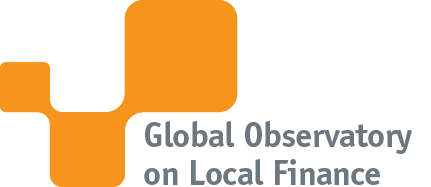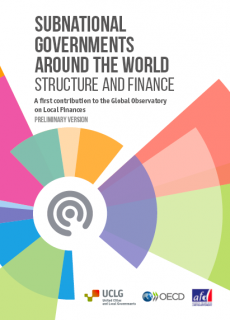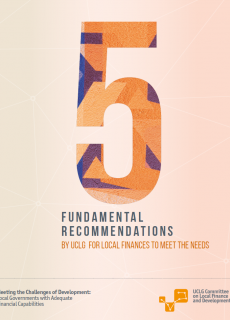Global Observatory on Local Finance
The Global Observatory on Local Finance, hosted by UCLG, in partnership with the OECD aims to:
- Share information on local and regional governments finance and structure, based on a broad statistical study on the state of local finance in 101 countries representing 82% of the world population and 87.5 of the world GDP.
- Present local and regional governments with tools adequate to financial means and capacities.
- Raise the international profile of UCLG members and contribute their perspective to global debates on financing development and supporting fairer distribution of national revenues;
- Promote dialogue and partnership between local governments and national governments, international institutions, and academics.
On this website, you’ll find our flagship report Subnational Governments around the World, Structure and Finance, as well as publications dedicated to local finances, country profiles summarizing the situation of local governments in 101 countries, financial instruments implemented in cities around by local governments, and a digital library.
Subnational Governments around the World, Structure and Finance
A first contribution
As acknowledged in the Addis Ababa Action agenda and the New Urban Agenda, having and sharing reliable and comparable data on subnational finance is essential for a better understanding of the financial and investment capacities of subnational governments at the local, national and international scales.
Availability and reliability of subnational finance data are instrumental to access external resources and enhancing accountability and transparency as well as improve trust with citizens. The study also builds up on, GOLD II (2011) analyzing the architecture of fiscal decentralization in over a hundred countries and
This study is a first exploratory step: during its process, it has identified the main information sources at international levels, as well as some major methodological and information gaps which will need to be addressed for further development.
With this perspective in mind, further support and commitment from a broader range of international development partners will be needed to transform this building block into a more comprehensive and permanent tool that can assess subnational governments’ capacity to carry out their responsibilities, in a more transparent and accountable manner.















